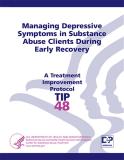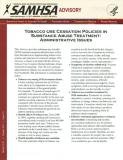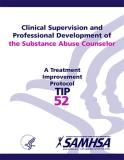
This quick guide contains an overview of the challenges associated with tobacco cessation and the benefits of being tobacco-free for individuals as well as those of a smoke-free workplace. It also includes tips that substance use disorder treatment settings can use to implement their own tobacco cessation programs.
Units per Product
Download
Tobacco Cessation Quick Guide for Providers
File Type: PDF
File Size: 1.23 MB
Quitting Tobacco – Flyer for Providers
File Type: PDF
File Size: 1.46 MB
You Can Quit – Flyer for Tobacco Users
File Type: PDF
File Size: 3.67 MB







